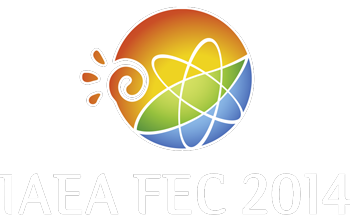Speaker
Dr
Richard Martin
(CCFE)
Description
The Mega Amp Spherical Tokamak (MAST) is a centre piece of the UK fusion research programme. A MAST Upgrade programme is under way with three primary objectives: 1) To develop reactor-relevant advanced divertor concepts, in particular long leg and Super-X configurations; 2) Add to the knowledge base for ITER, by addressing important plasma physics questions and developing predictive models to help optimise performance of ITER; and 3) Explore the feasibility of using a spherical tokamak as the basis for a fusion Component Test Facility; looking at start-up, current drive, steady state behaviour, exhaust, plasma confinement, high beta operation and performance reliability.
To deliver this capability the load assembly is being comprehensively upgraded. Most of the design has been completed and the project is now well into the manufacture / assembly phase. Many long lead time items have now been delivered including the new Divertor Field Power Supplies, the new Toroidal Field Power Supplies and a large number of the in-vessel coils.
Many new diagnostics are included in the upgrade; in particular magnetic diagnostics for real time plasma position and shape control, as well as post pulse equilibrium reconstruction. The divertor has extensive Langmuir probe coverage, bolometry arrays (and tomographic reconstruction), reciprocating probes (magnetic, Langmuir probe, RFEA detector heads), Thomson scattering, coherence imaging for divertor flows, imaging spectroscopy and infrared imaging. The extensive and high resolution diagnostics presently on MAST will be retained and further diagnostics are intended.
Early research will focus on exhaust studies, specifically production and control of various divertor configurations, physics of perpendicular and parallel transport, detachment formation and stability. The programme will quickly expand to include advances in areas such as fast ion instabilities and core transport, building on earlier research on MAST. In particular MAST Upgrade retains a powerful capability to study pedestal and ELM physics. The closed divertor will lead to lower main chamber neutral densities; as a result quantifying divertor closure, H-mode access and density-limits will be an early priority.
This work was part-funded by the RCUK Energy Programme and by the European Union's Horizon 2020 programme.
| Country or International Organisation | UK |
|---|---|
| Paper Number | FIP/P8-26 |
Author
Dr
Richard Martin
(CCFE)

